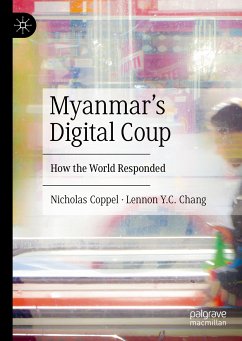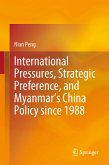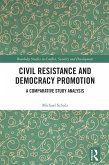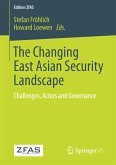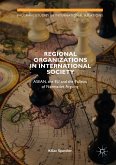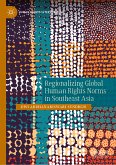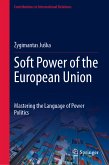- Dr. Morten B. Pedersen, University of New South Wales Canberra, Canberra, Australia.
This book analyses how technologies have been used by both the military junta and resistance movement in Myanmar's digital coup to control information and the transfer of funds and to pursue accountability. They have been used to pressure and mobilise external actors and the book critically assesses international responses ranging from the United Nations, ASEAN, individual countries, activist groups, donors and international businesses. Contact with the military has been criticised as recognising and legitimising the regime and individual firms have come under pressure to exit. The authors argue that the National Unity Government overestimates the significance of foreign recognition and activists overestimate the influence of international responses on military behaviour. They suggest external actors change from judging and excoriating the responses of the international community and focus on how foreign governments,businesses or organisations can support and strengthen Myanmar society. If change in Myanmar is to come it will be those that have remained, not those that have left, that will bring it about.
Nicholas Coppel is President of the Australia Myanmar Institute and a former senior career diplomat. He was Australia's Ambassador to Myanmar for four years from 2015 to 2018.
Lennon Y.C. Chang is Associate Professor, Cyber Risk and Policy, in the Centre for Cyber Resilience and Trust and the School of Information Technology, at Deakin University. His research focuses on the intersection of law and technology, cybercrime and cyber security, disinformation campaigns and foreign interference. He co-founded Cyber Baykin: Myanmar Cyber Security Awareness Campaign. Dr Chang completed a PhD in Law at the Regulatory Institutions Network at the Australian National University.
Dieser Download kann aus rechtlichen Gründen nur mit Rechnungsadresse in A, B, BG, CY, CZ, D, DK, EW, E, FIN, F, GR, HR, H, IRL, I, LT, L, LR, M, NL, PL, P, R, S, SLO, SK ausgeliefert werden.

